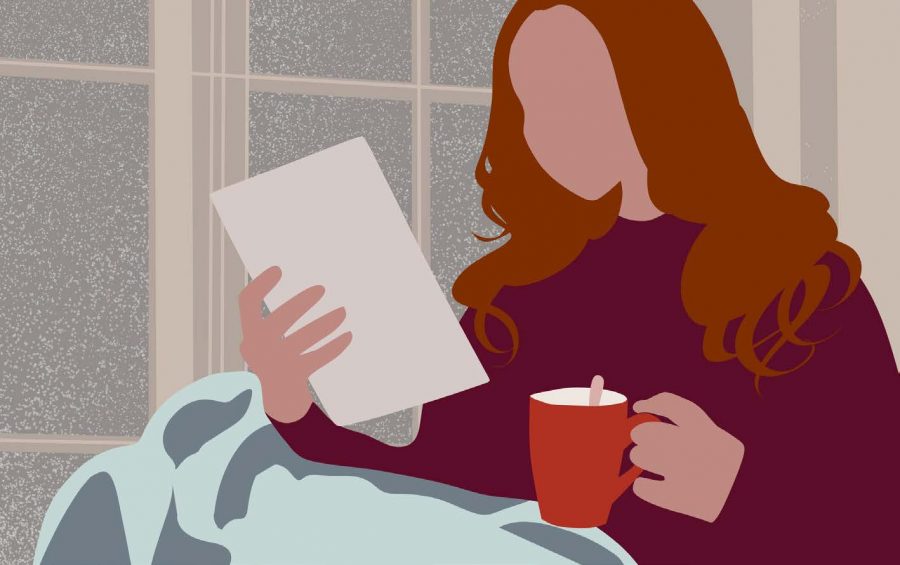Learning to cope during our first winter in a pandemic
January 26, 2021
Winter in Ellensburg could put a damper on anyone’s spirits, even under normal circumstances. Mixing shorter days and sub-freezing temperatures with isolation and other restrictions due to the pandemic has challenged students in finding ways to cope.
Junior and history major Camille Shulz is no stranger to the feeling of winter blues, and said these feelings have been heightened due to isolation.
“Typically, even pre-pandemic, I’ve always had some difficulties during the wintertime,” Schulz said. “I get a lack of motivation, and I’m more likely to feel sad or irritable.”
Schulz said the weather, a “constant wall of grey,” has been depressing. However, she said she is doing what she can to keep herself motivated, like reading or going for walks.
“It’s just important to take time to absorb the moments when you feel most happy,” Schulz said.
Junior and psychology major Clara Wallace said she is normally a fan of winter, and in previous years she enjoyed going downtown to cafes, movies and restaurants with her friends. Since many of those activities have been restricted this year, she said she has had to adapt.
“What’s so interesting about humanity is how creative we get … once we are isolated from each other, what we do with that,” Wallace said.
She said she found positives to the situation by making lists of things she always wanted to do, but never had the time for, such as spending more time with her roommates and reading.
“It’s about doing the little things for yourself,” Wallace said.
Despite her positive outlook, Wallace acknowledged the hardships people might experience navigating their first winter in a pandemic. She said as a psychology major, she understands what a lack of social experiences can do to someone’s wellbeing.
“Human connection is something that’s very important,” Wallace said. “Without that and the sun like we had in the summer, I think that combination has made things harder than they were.”
Seasonal Affective Disorder (SAD) is a term often used when discussing that sense of gloominess we feel during the colder months. Sabbath Jackson, the health promotions coordinator at the Wellness Center, has been educating about the disorder for years.
“It’s actually not a super common diagnosis, it affects about 5% of the U.S. population,” Jackon said. “However, it is relevant to talk about, because there are components of it that can affect a lot more people who don’t necessarily have to have a diagnosis.”
Some of the main components of SAD are a surplus of melatonin, a naturally occurring hormone that helps us sleep, as well as the urge to eat more, specifically foods rich in carbohydrates and a vitamin D deficiency.
Jackson shared some pandemic-safe tactics to cope with SAD or even similar symptoms. Exposure to light, especially in the morning, can help combat loss of vitamin D. It is also important to focus on sleep habits, especially as busy college students.
“We want to try and mimic the natural rhythms around us,” Jackson said.
Cindy Bruns, a counselor at the Student Counseling Center (SCS), also expressed the importance of sunlight and how that can affect our well-being. She acknowledged how much more difficult this is to manage during a pandemic.
“People have to be much more intentional about doing the things … that help with mental health and with mood,” Bruns said.
Bruns said students can call the SCS to set up a consultation meeting to see what their needs are. There are also support groups for a wide variety of situations, which could help students feel heard and understood when so much of our social life is currently missing.
WildcatCare 365 is a new service being offered free for students providing year round, 24-hour services ranging from counseling services, medical care and wellness coaching. Students can find more info at www.wildcatcare365.com.
“I want students to know that they don’t have to feel like it has to get really bad before they come and see us,” Bruns said. “We want to be there for the continuum for how we can best support them into wellness.”



